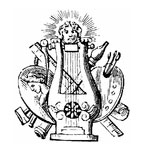
Are Theologians Necessary?
THEIR PROPER ROLE IN THE LIFE OF THE CHURCH
Those who attain to the vocation of theologian fulfill a critically important role in the life of the Church. As Pope John Paul II taught, “Faith and reason are like two wings on which the human spirit rises to the contemplation of truth” (Fides et Ratio, no. 7). By helping to provide reason for faith, the theologian assists the People of God, as John Paul II put it, “so that, by knowing and loving God, men and women may also come to the fullness of truth about themselves.”
In its 1990 instruction Donum Veritatis (“On the Ecclesial Vocation of the Theologian”), the Congregation for the Doctrine of the Faith (CDF), under the leadership of Joseph Cardinal Ratzinger, taught that “the truth which sets us free is a gift of Jesus Christ (cf. Jn 8:32). Man’s nature calls him to seek the truth while ignorance keeps him in a condition of servitude…. In the Christian faith, knowledge and life, truth and existence are intrinsically connected. Assuredly, the truth given in God’s revelation exceeds the capacity of human knowledge, but it is not opposed to human reason” (DV, no. 1). The sacrament of baptism serves as the initiation into the mystery of Christ and sets the believer on the search for a deeper understanding of the truths of the faith. Theology is the method by which believers “search for an understanding of the faith”; it is therefore “indispensable for the Church.”
This indispensable role of theologians is especially important in times of great spiritual and cultural change. The task of theology is exposed to risks during such periods as theologians “strive to ‘abide’ in the truth (cf. Jn 8:31), while at the same time taking into account the new problems which confront the human spirit.”
The primary function of the theologian is “to pursue in a particular way an ever deeper understanding of the Word of God found in the inspired Scriptures and handed on by the living Tradition of the Church” (DV, no. 6). Fr. Aidan Nichols, O.P., summed up this function as “the disciplined exploration of what is contained in revelation.” In order to fulfill his vocation, the theologian must operate in communion with the Magisterium, which has the responsibility to safeguard the deposit of faith. In providing a deeper understanding of the faith, the theologian also “aids the People of God in fulfilling the Apostle’s command (cf. 1 Pet. 3:15) to give an accounting for their hope to those who ask it” (DV, no. 6).
You May Also Enjoy
Contemporary scholars are so anti-religious, or a-religious, that they block out the huge role religion played in the past.
More than a few women do believe that motherhood can be an obstacle to a woman's independence and self-fulfillment.
A Hero of History Is Beatified... From Guiding Lines to Institutional Reality... The Rise of the Asian Frankenstein

